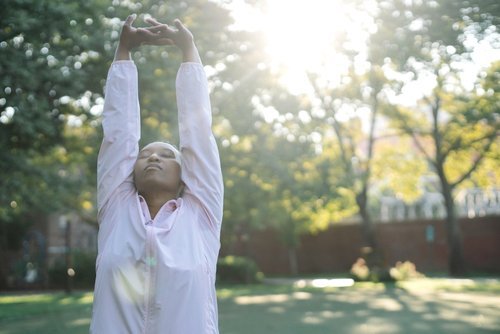
Educational Blogs from Our Mental Health Therapists
Learn about common challenges, including depression, anxiety, relationships,
trauma, and more, written by Maryland therapists!
Topic
- Anxiety
- Art in Therapy
- Biases
- Boundary Setting
- Brainspotting
- Burnout
- Business Owners
- COVID-19
- Careers
- Children & Teens
- Cognitive Behavioral Therapy (CBT)
- College Students
- Communication Skills
- DIY Crafts
- Depression
- Emotional Regulation
- Faith-Based
- First Responders
- Grief and Loss
- Highly-Sensitive Person
- International Clients
- Internships
- LGBTQIA
- Mindfulness
- Motivation
- Neurodivergence
- Online Counseling
- Oppression
- Parenting
- Recovery
- Relationships
- Resources
- Sex Therapy
- Trauma and PTSD
- Women's Issues
- Workshop
Re-Examine Independence and Embrace Healthy Dependency
“I hate that I want someone. Can’t I just be ok being alone?, ” a client of mine used to complain about her “being so needy”. In therapy, it was not uncommon to hear people feeling ashamed about needing someone. – In that sense, my client was not alone. Even among mental health practitioners, early training on mental wellness heavily emphasized independence – you are responsible for what you feel, no one else.
The Power of Softness: A Lesson from Tai Chi on Mood Regulation
Have you ever seen groups of seniors practicing Tai chi in the park early in the morning? It has been one of the most nostalgic moments for me ever since I moved to the U.S. three years ago. Tai chi is an internal Chinese martial art practiced for defense training, health benefits, and meditation. Of course, with its increasing popularity, Tai chi is no longer limited to the Chinese community today.
Someone who watches Tai chi practice for the first time may be shocked by how slow and soft Tai chi looks. That's right. The most powerful principle in Tai chi is called “overcoming hardness with softness.”
Tips to Help You Make the Most of Your Therapy Sessions
For those who are getting ready for mental health therapy, the most important question is: “how can I benefit the most from therapy?” I have five tips for clients who are getting ready for this journey with their therapist.
Mindfulness: Helpful Tips and Techniques for Anxiety and Emotional Dysregulation
According to Jon Kabat-Zinn, mindfulness is, “awareness that arises through paying attention, on purpose, in the present moment, non-judgmentally.” Based on this definition alone, you can see that mindfulness can be incorporated into our daily lives without consuming additional time.
Women's Mental Health and Ways to Improve Overall Wellbeing
Women are often raised with messages about being caring, nurturing, thoughtful, and family oriented. These communicated values, as well as the behaviors that we have observed in the women before us, sometimes result in continued patterns of taking care of others while putting our own wants, needs, and self-care on the back burner.
Quick Everyday Mindfulness Activities
Mindfulness is about working to be present in your current activities and moments. Additionally, it has been shown to help alleviate the intensity of anxiety symptoms. Sometimes mindfulness activities can seem daunting to fit into your schedule, or complicated to execute. Here are some quick ways that you can incorporate more mindfulness into your day.
Releasing the Eagle Within
There are many people who are seeing others as their true selves for the first time. As is no surprise, there is a lot of necessary healing to undo the pain caused by not acknowledging, and by not being acknowledged. Where do you start such an intense process? I encourage people to realize that one of the easiest, most natural and genuine ways to begin healing is through stories. When you tell your story, and when you listen to someone’s story, the common threads of humanity are activated in a powerful way.
Red, Green, or Blue. Are You in the Growth Zone?
Think of a current challenge or life situation you are facing. Are you in the red zone, the place that is so stressful and overwhelming that finding growth is not possible? Are you in the green zone, the place where you’re feeling the stretch, but it ultimately still feels manageable? Or are you in the blue zone, the place where you are not growing due to lack of challenge?
Mindfulness and Thanksgiving
Around this time of year, many of my clients come to me for help with managing the stresses that come along with the Thanksgiving holiday. In the spirit of mindfulness, I encourage my clients to examine and challenge their beliefs (and accompanying behaviors) that may be making the holiday less healthy or more stressful. I have noticed two reoccurring automatic assumptions related to Thanksgiving that I’d like to share, along with mindfulness-based recommendations that I offer my clients to help make this a happier and healthier holiday.









